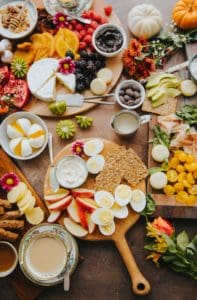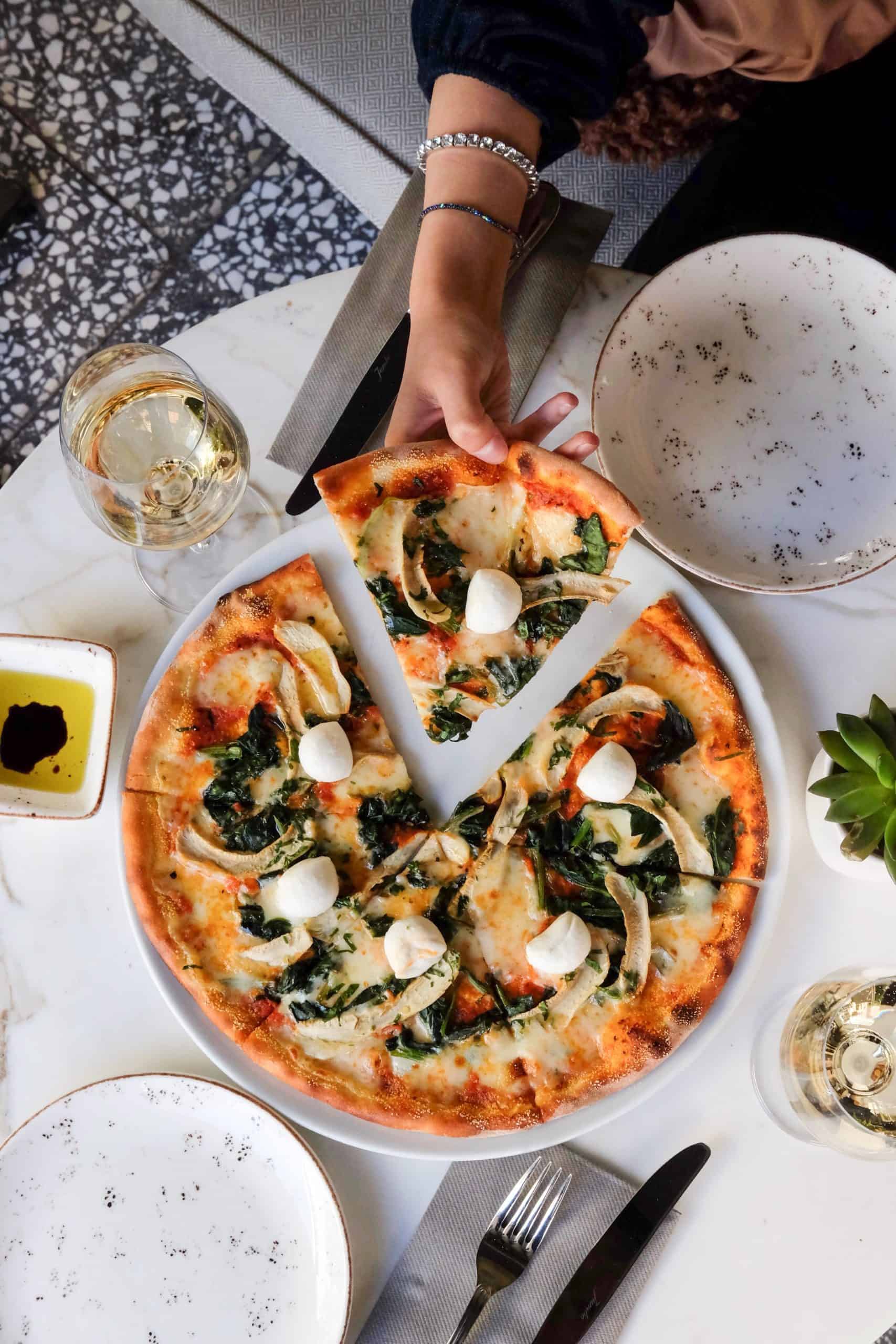3 important things to consider if you are concerned about emotional eating.
Diet culture has HEAPS to say on the experience of emotional eating and in my opinion it’s shaming, unhelpful, un-compassionate and often also untrue.
1) The first and really important thing I want you to know is that it is normal and very human to eat for reasons other than just physiological hunger.
Intuitive eaters actually eat for various reasons other than physical hunger (the “I FEEL hungry” reason) at times which may include emotional reasons. There is nothing inherently wrong with this. Intuitive eating is not “only eat when you feel physically hungry.” That is actually a food and eating rule with diet culture residue.
How people even experience physical hunger itself varies a lot too. It’s not just (or even at all) a growly tummy! That is a conversation for another day though.

Emotional eating? There are many reasons why people eat.
Some reasons why someone might eat when they aren’t “feeling” hungry:
- Because they know they are going to be stuck in back to back meetings and unable to eat until much later. They consider that not eating something now would likely land them in hangry town mid-meeting so they choose to eat
- Because they are feeling quite anxious, stressed or unwell and know that even if they don’t have much of an appetite due in part to these experiences that their body still needs to be nourished
- They are taking a medication that might impact their appetite signals and cues (dampen them, delay them or silence them) and know that they still need to regularly feed themselves
- They eat as part of a celebration, ritual, spiritual, cultural or community gathering
- They may have a condition that makes it hard for them to manage to eat adequately. They know that they need to work to nourish themselves even if it’s really hard to do for different reasons
- They may find that it’s a once in a life time eating experience and they want to choose to eat/taste or continue eating (in Intuitive Eating the authors bring up the example of a couple on their wedding day. They arrive at their cake cutting feeling full but choose to eat their cake anyway).
- They may have increased needs for energy or nutrients, but not an increased appetite that matches
- They may eat for stimulation
- They are working to recover from an eating disorder and are not in a place yet where they can rely on their bodies signals and cues to guide their eating
2) When we talk about emotional eating we can be talking about turning towards food OR turning away from it.
Eating and food can become a way of escaping from emotions, trying to manage difficult situations and feelings or used as a tool to comfort.
Someone may eat or avoid eating when they feel…………..
- Lonely
- Scared
- Anxious
- Connected
- Disconnected
- Angry
- Disappointed
- Sad
- Uncertain
- Hurt
- Bored
Sometimes food and eating may be the only tool we have access to, are familiar with or are aware of that we can turn to. It may feel like the only thing that we have control over.
Food and eating can actually be a very clever way to get through something hard when we aren’t able to find any other way to manage it or navigate through.
It’s important to acknowledge how emotional eating has served you. It’s also important to consider that eating (or choosing not to), while maybe seemingly helpful in the short term, doesn’t ultimately help manage or meet the real underlying need/s that may be around.
Food can do a lot for us, but it can only do so much.
Like all choices there are also pros and cons to using food and eating as a coping tool.

Gentle Questions to Consider:
- Were you supported in expressing your feelings and finding ways to navigate them and/or difficult situations growing up?
- Do you have a variety of ways to manage difficult experiences and feelings outside of food, eating and exercise?
- Do you feel like food is the only thing you can control or that you feel out of control around it (or certain foods)?
3) You may want to consider seeking support for your food and eating concerns.
Are you finding that emotional eating is something frequent or upsetting to you?
You are likely reading this because you have some thoughts and feelings about your eating. Maybe you’ve noticed eating when you aren’t physically hungry or choosing to eat or not eat eat when you are feeling certain feelings. Maybe you are judging yourself harshly for your experiences or feeling confused and uncertain. Maybe it’s something that is showing up fairly regularly and you feel like having more options than food would feel good.

A few things that may let you know it’s time to consider seeking support:
- Your food and eating habits and behaviors are interfering with your relationships, work or social life
- You are experiencing feelings of depression, anxiety, fear, shame or guilt around food and eating
- You don’t feel like you have other options to choose from to help navigate big feelings, difficult situations or the need for stimulation
- You are concerned you might be struggling with binge eating disorder (binge eating disorder and experiencing emotional eating are not the same thing)
You are deserving of having space to try on and try out other tools that may be helpful to you, to have support for navigating what challenging situations or big feelings might be with you and support to unpack what may be disconnecting you from your own body signals and cues and ways to reconnect with them. If you don’t work with a psychologist or counselor you might find connecting with one helpful. If you are, you might consider bringing up what’s going on in order for them to offer support to you around it.

Wander and Nourish Nutrition Clinic: A place to explore emotional eating and finding peace with food
You may also benefit from support from a non-diet Dietitian.
Let’s chat and see if getting support from a Dietitian could be a good fit for your emotional eating concerns. Book a Free 15 Minute Exploration Call now. A free video chat (no matter where you are in the world) to connect and consider what next steps you might find helpful with how you and food are feeling right now.


